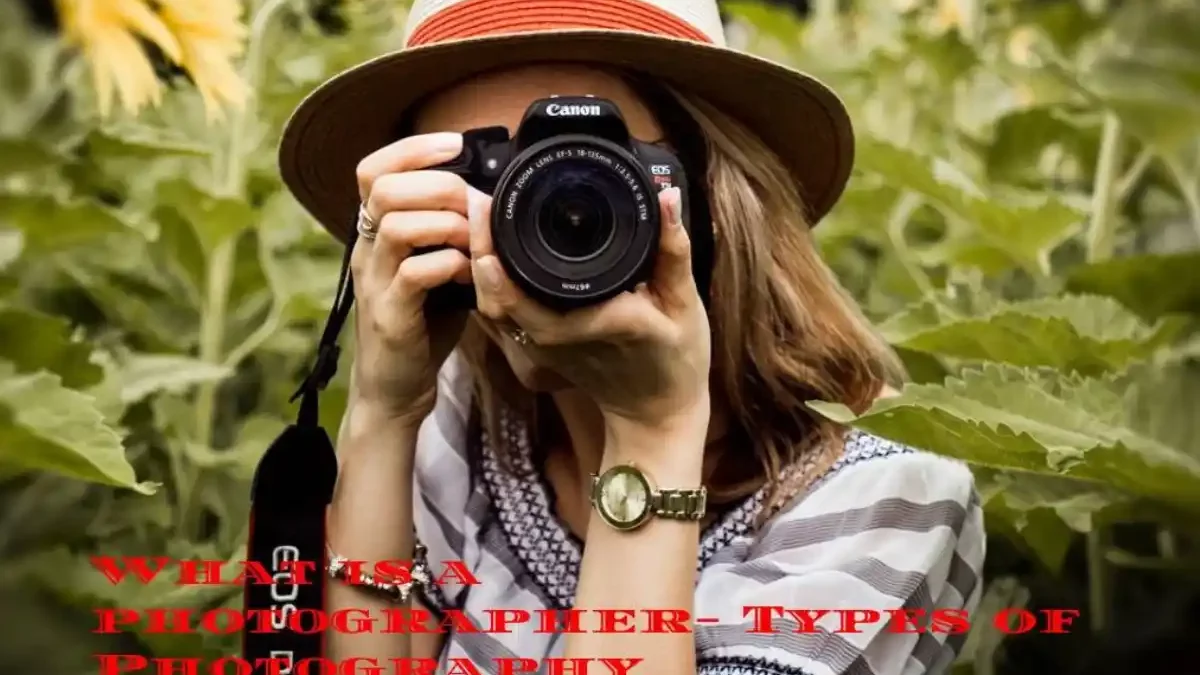Table of Contents
What is a Photographer?
A photographer is a professional who focuses on the art of taking pictures with a digital or film camera. Photographers use artificial or natural lighting to take photos of various people, places, and things in multiple settings. Some photographers focus on studio work, while others explore the natural world. There are a variety of photography niches that one can choose from and uniquely showcase their artistic ability.
How to Become a Photographer
While entry-level photojournalists and commercial and scientific photographers typically need a college degree in photography, portrait photographers only need technical knowledge.
A photographer must develop a portfolio to showcase their work to potential employers and clients. A portfolio is an accumulation of photographs taken over the years and not only includes an artist’s best work but should also include pieces that demonstrate the process they went through while creating a final product.
What does a Photographer do?
A photographer usually works freelance or independent and is hired for specific jobs. Some photographers work exclusively in certain industry segments, such as weddings, graduations, and other types of events. In contrast, others do primarily corporate work, spending most of their time taking photos that will appear on business websites and other promotional materials. Others, however, focus more on the artistic side of photography, choosing their subjects and material that they wish to photograph.
Types of Photography:
- Landscapes, Aerial, Underwater
- Fashion, Architecture
- Wildlife, Pet
- Sports, Action, Vehicle
- Real estate
- Physician, Scientist
- Food, Travel, Advertising
- Wedding, Graduation, School, Events
For the most part, a photographer is a part-time employee who works either on weekends for weddings and events or whenever he can find clients willing to hire the jobs. A part-time or freelance photographer who a client hires is responsible for following the client’s wishes down to the most delicate details.
A professional photographer working full time often does studio work that involves taking pictures in a controlled interior with professional or amateur models. These photographers maybe freelance, or certain magazines and fashion companies may also employ them. Other forms of full-time professional photography include shooting for the film, shooting crime scene photography in cooperation with local and federal agencies, and shooting for digital and print newspapers. However, often newspapers will work with a freelance photographer instead. to hire full-time.
Finally, photographers are responsible for the digital or physical development of their images and may also be responsible for editing them. For physical prints, a photographer will need to know how to develop their film best or be expected to hire other professionals to build their movie for them.
On the other hand, the photo editing process can include simple cropping or changing colors, lighting, and adding or removing objects from photos. Some clients choose to edit the images, while others expect the photographer to do the photo editing.
What is the Workplace of a Photographer like?
A photographer will require to work in endless settings and environments. This may include working in comfortable studios in a big city or working in the frozen forests of a remote country. A photographer is one of the few professionals who could be wearing shorts and a t-shirt one day or dressed in a tuxedo the next. Most photographers who are serious about their craft will also have a home office or studio that will include a place to work on digital or physical photos.
What Skills do you Need?
In addition to technical competence, a photographer needs specific soft skills, or personal qualities, whether he decides to work for someone else or as a freelancer.
Artistic Ability: Photographers are artists who must have the creativity to tell stories using images. They need a keen eye for color, light, and composition.
Interpersonal Skills: Whether it’s the people you’re photographing, your clients, or your colleagues, you need to be able to understand their needs, read their body language, and coordinate your actions with theirs.
Communication Skills: Excellent listening and speaking skills will allow you to understand what others are saying to you and help you explain things to them.
Customer Service: Freelance photographers. In particular. Must provide excellent service to their clients because repeat business and positive word of mouth are essential to success.
Entrepreneurial Skills: Those who run businesses must know how to market themselves. Take care of bookkeeping, and keep track of expenses and profits.
Daily Tasks
- Use a high-resolution camera, either analog or digital.
- Adjust the necessary lighting in the studio or on location.
- Photographing subjects (e.g., models, buildings, landscapes, events).
- Photograph different elements (models, buildings, landscapes, events).
- Operate different types of technological equipment and programs (scanners, computers, and Photoshop).
Conclusion
If you are taking your first steps as a photographic artist or as a professional photographer. In another genre and you want to move into the world of art. There are certain aspects that you should know. In this article, Menna and Giles offer tips for building a reputation and career as a fine art photographer.

